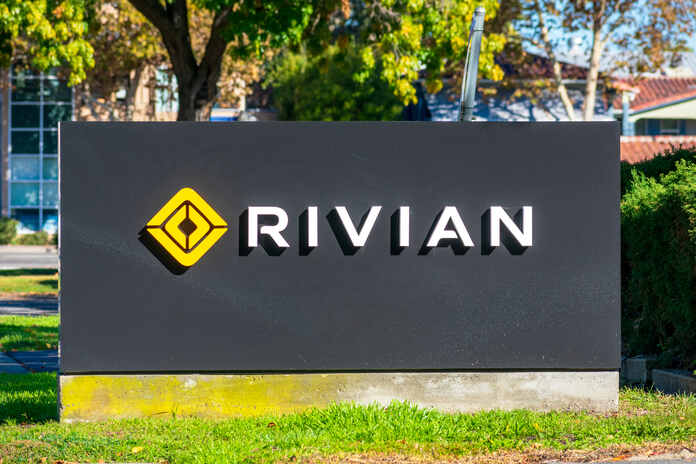Rivian Stock (NASDAQ:RIVN)
The situation at Rivian Automotive (NASDAQ:RIVN) has become difficult. The company has had difficulty increasing its production of electric vehicles, which may be contributing to the decline in its share price this year.
Vertical integration is one of the reasons why Wall Street is not giving up on the stock, and it is one of the reasons why.
When we talk about a company having vertical integration, we mean that they own or participate in all parts of their value chain. For example, at the beginning of the age of the modern automobile, Ford manufactured the steel that was used in the production of its automobiles.
Canaccord analyst George Gianarikas recently visited Rivian (NASDAQ:RIVN) in Palo Alto, California, and met with several executives there. Based on what he learned during his trip, the analyst believes the start-up is headed in the right direction.
“helped us dive deeper into understanding the layers of vertical integration and technology proficiency at the company,” Gianarikas wrote on Wednesday about his conversation with Rivian executives.
According to the report that summarized the visit by an analyst, Erik Fields, vice president of manufacturing at Rivian, described his company’s strategy as “if Google and Toyota had a baby.” He said it was like “if Google and Toyota had a baby.”
Alphabet (NASDAQ:GOOGL), the parent company of Google, excels at machine learning, software development, and all things related to the digital realm. Toyota Motor (NYSE:TM) has a well-deserved reputation for being an industry leader in manufacturing quality. In today’s world, vertical integration refers more to the integration of software and microchips than it does to the integration of metal and rubber.
Key Players in the Electric Vehicle Market
Rivian: A Force to be Reckoned With
Rivian is yet another significant company operating in the electric vehicle market. Consumers and investors alike have become interested in Rivian as a result of the innovative electric pickup trucks and sport utility vehicles (SUVs) that the company produces. Rivian vehicles are poised to make a significant impact in both the urban and adventure-driven markets as a result of their combination of streamlined designs, off-road capabilities, and impressive battery range.
Vertical integration signifies the development of manufacturing expertise across a range of products for Rivian, including automobiles, batteries, and battery systems. Rivian is also working to reduce costs by integrating its own electric motors into its products. It is responsible for designing its own chips and writing its own software. Down the road, there is the possibility of Rivian establishing its very own charging network.
Toyota: A Legacy Automaker Embracing Electric
Traditional automobile manufacturers are getting in on the action as the market for electric vehicles continues to expand. Toyota, which is well-known for taking an inventive approach to the production of automobiles, has made significant headway in the electric vehicle market. Toyota aspires to close the gap between traditional modes of transportation and those that are more environmentally friendly by introducing hybrid versions of their vehicles, such as the Prius, and by committing to the research and development of fully electric cars.
Tesla: Pioneering the Electric Revolution
When talking about electric vehicles, it is impossible to ignore Tesla, the company that helped start the electric revolution. Tesla was the first to mass-produce an electric vehicle. Tesla’s pioneering designs, cutting-edge technology, and unrelenting pursuit of environmentally responsible transportation have all contributed significantly to the rise in the popularity of electric vehicles (EVs). Their Model S, Model 3, Model X, and Model Y automobiles have received a great deal of praise and have established new standards in terms of their performance, safety, and range.
That’s the same as car manufacturers also owning gas stations. In the United States, Tesla (NASDAQ:TSLA) is the owner of the largest network of electric vehicle charging stations.
According to what Gianarikas has written, Tesla was the first company to pioneer EV vertical integration. He goes on to say that Rivian began its journey with a familiar philosophy: make things in-house. He is optimistic about the outcome of the strategy, stating, “Rivian is well on its way to capturing its fair share [of the EV market], and [we] see the R1S as the electric family SUV of choice.”
Rivian stock is expected to increase by approximately 170% to reach its price target of $40 per share, up from its recent price of just below $15 per share.
Rivian stock has experienced a decline of approximately 48% over the past year, whereas the S&P 500 and the Nasdaq Composite have each experienced gains of approximately 4% and 11%, respectively.
Compare this to the average Buy-rating ratio of 53% for stocks included in the S&P 500, which is 53%, and you can see that overall, 58% of analysts covering the company rate shares as Buy. During the time of Rivian’s initial public offering in 2021, the company’s popularity was at an all-time high. Approximately 67% of analysts recommended buying shares at that time.
In the past, the average price target set by analysts was higher as well, beginning at approximately $130 per share in the year 2021. The current average is somewhere around 24 dollars.
Both the average price target for Rivian’s stock, as well as the stock itself, have fallen as a direct result of a number of factors. In addition to Rivian’s difficulties in ramping up production as quickly as investors had initially hoped, rising interest rates and a slowing economy have contributed to a decrease in investor interest in businesses that do not produce positive free cash flow.
Featured Image: Megapixl















